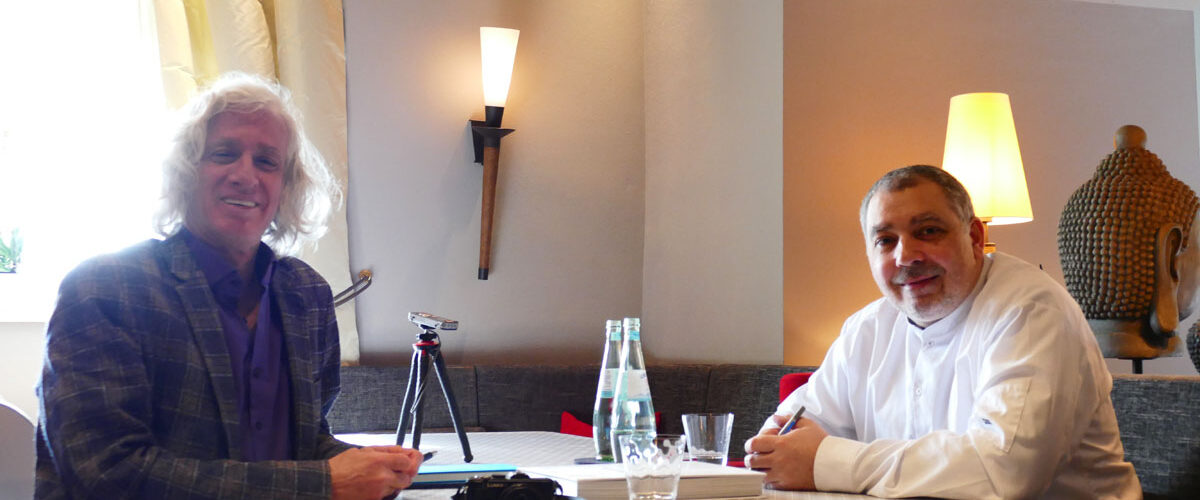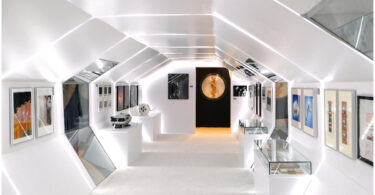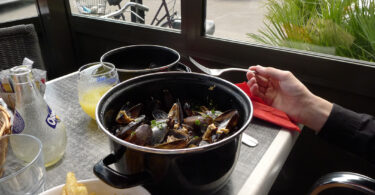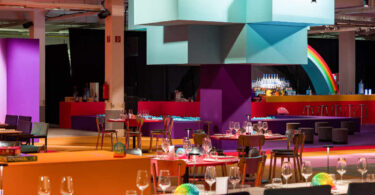MG: You left your childhood home at the age of 16. With eloquence and perseverance, you launched an incomparable career.
Are there reflective moments when you feel gratitude for what you have achieved?
CB: Every day when I get up I feel gratitude. I look at what my life has been given to me and the life I am allowed to live today, even if it is very hard, with gratitude.
Often my day ends only after 16 or 17 hours of work, then I go home just to sleep.
I am a happy person, I appreciate life and I know where I come from. I know what I want to achieve, I’m doing better than average, above average, I have a high level of recognition.
I have both feet on the ground, I have never lost my grip.
I have never had any alcohol or drug problems.
MG: A career is always associated with money.
Did you aim for success in order to move away from the memories of your youth?
CB: I haven’t analysed it exactly yet. In the beginning there was a lot of obstinacy.
After my training, I obsessively wanted recognition and success. Of course, that also has a lot to do with my own history, with my childhood home.
When I came into the world, my mother was only seventeen years old and a single parent, by today’s standards one would probably say Hartz 4 (money paid to financially disadvantaged citizens) to the family circumstances, we were at the subsistence level.
Certainly there was a subconscious impulse, but I am not monetarily influenced to this day.
For example, when my friend Sascha Stemberg asks me if I’m going to cook at the 4 Hands Dinner (special cooking event), I say:
“Hey, I love you, I love your family and I love dear old Walter Stemberg, of course I’ll come”.
I do something like that because I feel in the mood for it and because I’ve already spent so many wonderful hours with Stemberg, I don’t take a single euro for that. It’s not the money that pushes me. I do things out of conviction.
MG: The most beautiful moments happen between two people, or when something improbable happens, one of those moments when destiny throws a surprise on the road.
Was there such a “decisive moment” in your life?
CB: If I am to associate it with my career, there was this crucial moment when I met my current employer, 23 years ago.
At that time, I was on my way to Trier to visit my friend Wolfgang Becker. On that trip, this castle caught my eye. I said to my wife, who was pregnant with our first child:
“This looks very nice here, let’s make a little stop”.
In the restaurant, paper towels were laid out on the tables and the decoration was made of dried flowers. As we were leaving the castle, Hartmut Ostermann, my employer today, crossed my path.
Casual and slightly surprised, he asks us what we have to do at the castle. We talked by a coffee. That’s where this success story came from.
There were always rumours that my mentor, Harald Wohlfahrt, had got me this job at the time, but that’s not true! It was an incredible coincidence and a great stroke of luck that I was here at that exact moment, half an hour earlier or later, and this meeting would never have happened.
MG: Do you consider yourself an openminded person?
CB: In the meantime, yes, but I am not somebody who spout off something without being asked. I want to regulate the communication that goes outwards, I want to handle it myself, I don’t have a PR manager. I don’t have to say something about every issue, but when it’s appropriate, I say something.
I will say something when it is appropriate.
We are missing an outstanding figure, in contrast to some other sectors, there has been a vacuum for the last few years. Hardly anyone dares to say anything, for various reasons: people don’t want to step on their competitors’ toes, they don’t want to offend their customers.
![[:de]Grandgourmand, Travel, Food, Lifestyle[:]](https://grandgourmand.de/wp-content/uploads/2023/01/logo_23_1-1.png)




